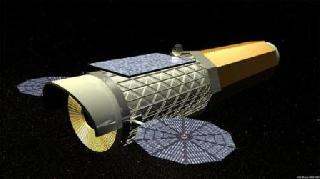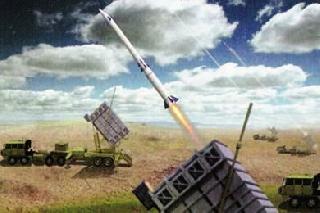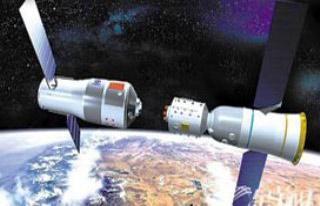
Study of the planned X-ray telescope IXO. A NASA photo
BERLIN (BNS): Scientists hope to discover more about the origin of the universe with brand new information about black holes expected to be provided by the International X-Ray Observatory (IXO) when it is launched into space in 2021.
The German-Russian experiment eROSITA will do the preliminary work - searching the whole sky for a specific kind of black hole - upermassive black holes which developed at the dawn of the universe.
Scientists expect that -- among other things -- approximately three million new black holes will be found with this mission. IXO will then be responsible for their systematic investigation.
IXO can capture the X-radiation of very distant black holes, because this kind of radiation penetrates -- in an unhindered way -- cosmic dust, which is the most frequently occurring impediment on the way.
The telescope being planned by space agencies NASA, ESA and Japan's Aerospace Exploration Agency JAXA will become the largest X-ray telescope ever.
Its dimensions are gigantic - the surface of the mirror alone, which is to capture, for example, the cosmic X-radiation of black holes, will be 1300 square metres in size. It will consist of commercially available silicon wafers with pores of a few millimetres underneath.
The quality of these "hidden" surfaces will be tested at the Physikalisch-Technische Bundesanstalt (PTB) with a monochromatic X-ray pencil beam. The new measuring device has been installed at PTB's synchrotron radiation laboratory at BESSY II in Berlin-Adlershof, a PTB press release said.
In addition, the new space telescope is also expected to provide new information about neutron stars and stellar black holes, the second type of black hole which develops when especially massive stars explode.
 Previous Article
Previous Article Next Article
Next Article









The Indian Air Force, in its flight trials evaluation report submitted before the Defence Ministry l..
view articleAn insight into the Medium Multi-Role Combat Aircraft competition...
view articleSky enthusiasts can now spot the International Space Station (ISS) commanded by Indian-American astr..
view article